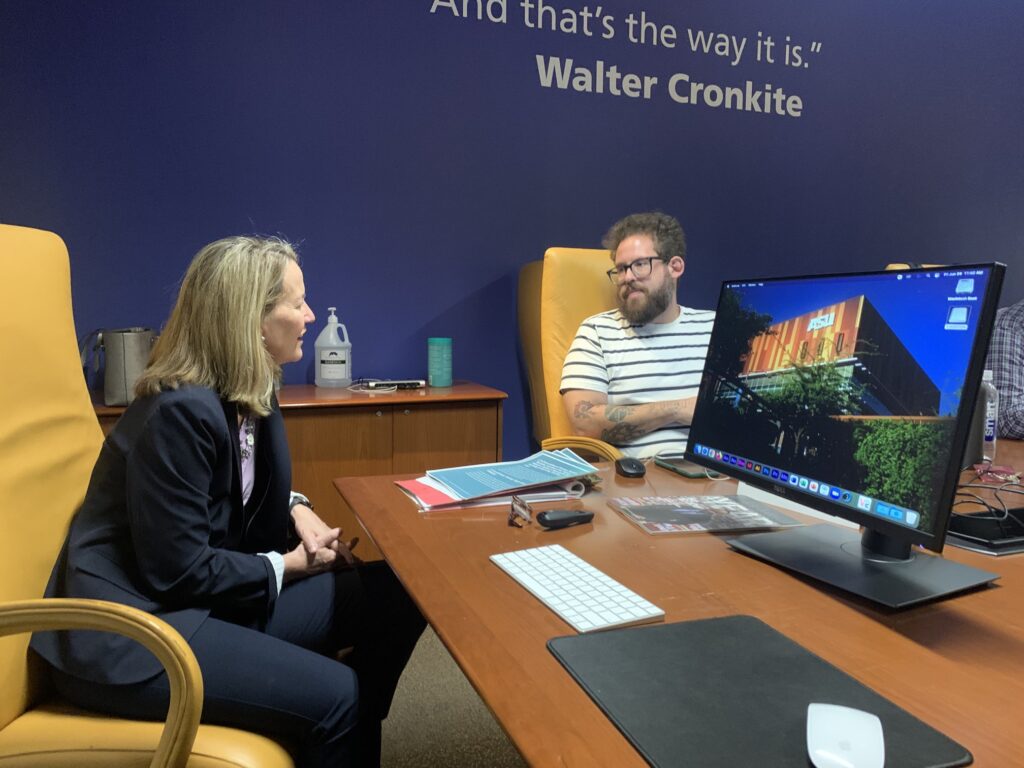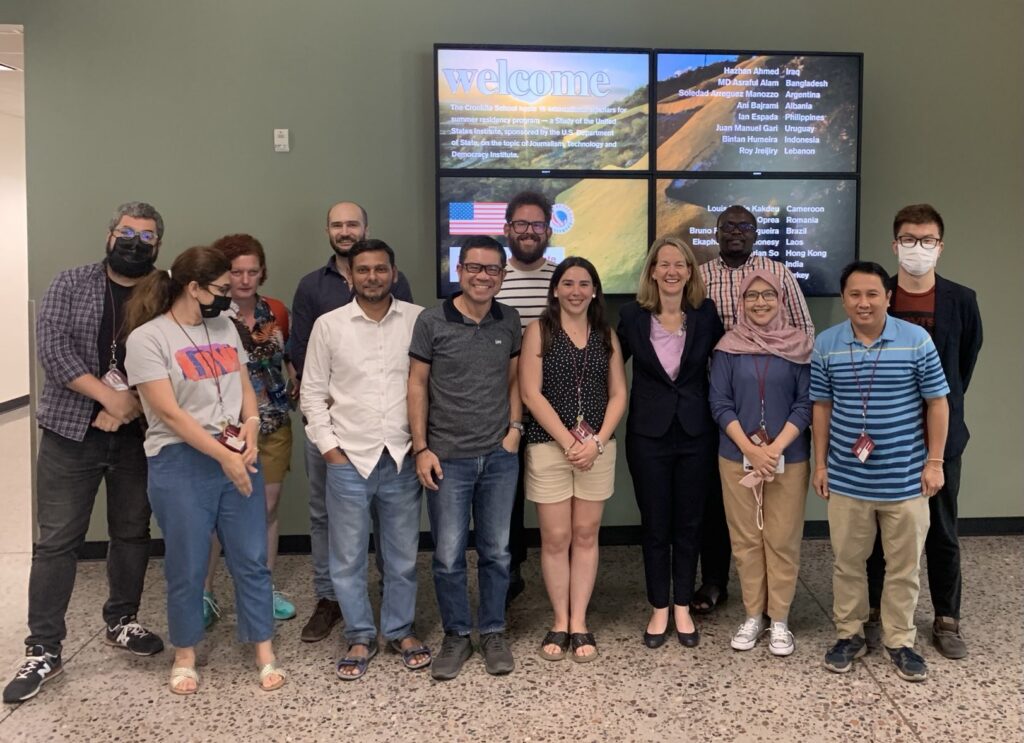The beautiful electric storm that could be seen on the northern horizon on Thursday night presaged the political ruckus that hit the U.S. early on Friday, when the Supreme Court overturned Roe v. Wade. In that context, the talk with Kris Mayes, Democratic candidate for Arizona attorney general, could not have been more timely. Among other things, the politician talked about her plan to ensure the right of women to have abortions in her state if she is elected. Several scholars provided examples of how this hugely divisive issue is treated in their countries from a legal and political perspective.

The concepts of a divided country and polarized society came up once again during the conversation, as it has in the last few weeks. And it struck me at some point that the great majority of the admirable people who have generously talked to us saw and analyzed the US reality from the same side of this division… Because I am a journalist, I tend to take nothing at face value, to think of what happens and the situations I face in terms of questions and to play the devil’s advocate (as we learned this week, always go harder on the plaintiff).
So, I found myself wondering: are there no Republicans who condemn what happened on January 6th? Are there no Republicans who defend democracy? Are there no Republicans who do not think that prosecuting women who have abortions is the answer to the abortion issue? Are there no Democrats who support the Supreme Court decision on Roe v. Wade? Etcetera. These questions stand out, particularly, in a week when Rusty Bowers, speaker of the Republican majority of the Arizona House of Representatives in Phoenix, spoke before the January 6th hearings committee. In his testimony, he gave a detailed and heartfelt account of how he stood firm amid the pressures of former president Donald Trump in the most heated moment of the 2020 elections and refused to overturn its results in Arizona. What I mean is: if you portray half the population as a fanatical mass (for example, in a pars pro toto fallacy that equates Republicans with the people who stormed the Capitol), what are you doing to improve the polarization and division you denounce?

When seen from a journalism practice perspective, I find a lot of journalists have become too quick on the trigger when it comes to expressing opinions before stopping to look, listen and understand in order to be able to describe and explain reality, taking into account as much of its complexity as they can. Especially on social media, where a lot of journalists fall prey to the toxic environment that favors emotional reactions and instinctively give in to the heat of the moment with less than well informed commentary. This, I believe, is part of the crisis in journalism.
Candidate Mayes, a former journalist herself, lucidly pointed to the reduction of personnel in newsrooms in the U.S. as one of the main aspects of the crisis that plagues journalism. Media with fewer journalists is media in which journalists have to do more with less time. Understanding reality is a hard, complex task that requires journalists to get out of themselves. Complexity demands time and effort. While I think journalism has a role to play in bringing people together (that is what communication is about, communion), without time, accurate descriptions of reality that might provide explanations are replaced by superficial accounts, or easier functions. Such as expressing opinions. As deceased Spanish journalist Josep Pla once said, “It is much harder to describe than to opine. Infinitely more. Because of this, everyone opines.”
The business model is the usual suspect in the crisis. However, there is another side of that which has to do with journalism’s primordial mission: to provide a public service that helps improve political life. And “public” and “political” means involving everybody, not just those who share the journalists’ opinions. Even if it is only to try to understand, which does not mean justify.
These reflections come at the end of an extremely stimulating week in which, amidst historical events and guided by the great Dan Barr, SUSI scholars had the unique opportunity to meet with judges, lawyers, journalists and authorities to discuss current events and the legal context that surrounds the practice of journalism in the US.
